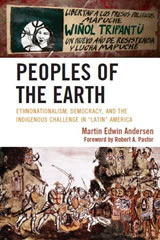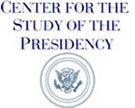When Tabaré Vázquez, Uruguay's former president, let slip this month that he considered going to war with Argentina following a bitter dispute over the construction of a paper mill, he did not expect to become the first victim of that hypothetical conflict.
His comments to students generated outrage, especially in Argentina. But they also highlighted the shift in security discourses since the end of the cold war, away from traditional issues of war and peace and towards "environmental security".
No one believes Vázquez was serious when he said he was quitting frontline politics. He hastily apologised for his remarks and remains the left's most likely presidential candidate in 2015. Yet the incident is indicative of both the high stakes involved in disagreements over shared resources and the cross-border nature of many environmental issues.
It is less than a year since the war of words over two pulp mills planned for the Uruguay river ended. The proposals, and the construction of the Botnia mill in Fray Bentos, sparked vociferous opposition in Argentina over contamination risks.
The matter was referred to the international court of justice and resolved with the establishment of joint monitoring, but bitterness persists and Argentinian environmentalists remain on alert. In July, the Spanish news agency EFE reported that researchers from the University of Buenos Aires had found traces of toxic substances in fish from the river.
Although modern Latin America has avoided the catastrophic conflicts experienced in other regions, lingering disputes form a backdrop to environmental discord.
Uruguay, for example, is particularly prickly about energy dependence on neighbours well endowed with resources. In the late 1990s, the country fell out with Brazil over air pollution from the President Medici power station, while this year it crossed swords with Argentina over access to Paraguayan electricity.
Moreover, cross-border disputes can rapidly snowball. When Ecuador quarrelled with Colombia over the impact of US-funded aerial coca fumigation, it dragged the entire neighbourhood into the row.
At the heart of most environmental tensions is access to natural resources by economies with high levels of poverty, which tend to be heavily dependent on commodity exports. This reflects the trade-off Latin American governments make between development and environmental protection.
For example, one of the region's poorest countries, Bolivia, has alarmed environmentalists with the development of the El Mutún iron ore deposits near the Pantanal wetlands, which are mainly in Brazil but extend to Bolivia and Paraguay. Bolivia and Brazil have already squabbled over El Mutún after the Brazilian foundry maker EBX was kicked out for lacking environmental permits. Growing demand for food and biofuel has also fuelled occupation of the upper Paraguay river watershed in Brazil, destroying forest and threatening more pollution.
Where competition over resources is acute, local grievances sometimes threaten to light the blue touchpaper. One such tinderbox is the contentious frontier between Ecuador and Peru in the Cordillera del Cóndor, the site of Latin America's most serious recent border conflict until the countries signed a peace deal in 1998. Both governments are now competing to grant lucrative mining concessions in areas that have been past flashpoints.
Policy experts believe access to water is the issue with the most potential for stoking conflict. The problem is likely to be exacerbated by climate change, because most of Latin America's major river basins are shared and water disputes rapidly assume a political character.
Friction between Bolivia and Chile over the Silala river illustrates how water disputes can touch raw historical nerves. Similarly, long-standing border tensions between Nicaragua and Honduras have been complicated by the impact of Hurricane Mitch in 1998, which changed the flow of the Negro river.
Hydroelectric power also cranks up strains. The potential for dams on the Usumacinta river has been a historic focus of tension between Mexico and Guatemala, and opponents of Brazilian mega-dams on the Madeira river warn they will also affect Bolivia and Peru.
Strains in the La Plata river basin are likely to escalate as development fuels rapid growth. The proposed Hidrovía project to straighten the Paraguay-Paraná rivers for better navigation to landlocked Bolivia and Paraguay also threatens the Chaco-Pantanal wetlands.
Pollution stirs this volatile mix, as in the Botnia case. On the other side of Uruguay, at its border with Brazil, biocides and fertilisers used in rice paddies have contaminated run-off into the Patos-Mirim lagoon system, stoking water quality disagreements.
Migration resulting from land exhaustion or climate change is another major potential source of conflict, especially if it brings into contact peoples with pre-existing tensions. The migration of 300,000 peasants from El Salvador to Honduras in search of land in the 1960s helped to spark the brief but bloody "Soccer War" of 1969.
While the UN system is edging towards "green peacemaking", some environmental groups believe mechanisms for resolving disputes in Latin America are lacking. Observers have even called for a regional version of the Espoo convention, the 1991 European pact on trans-boundary environmental impact assessment.
Small countries with big neighbours, such as Uruguay, would be the main beneficiaries of this – as would outspoken politicians prone to putting their foot in it.






